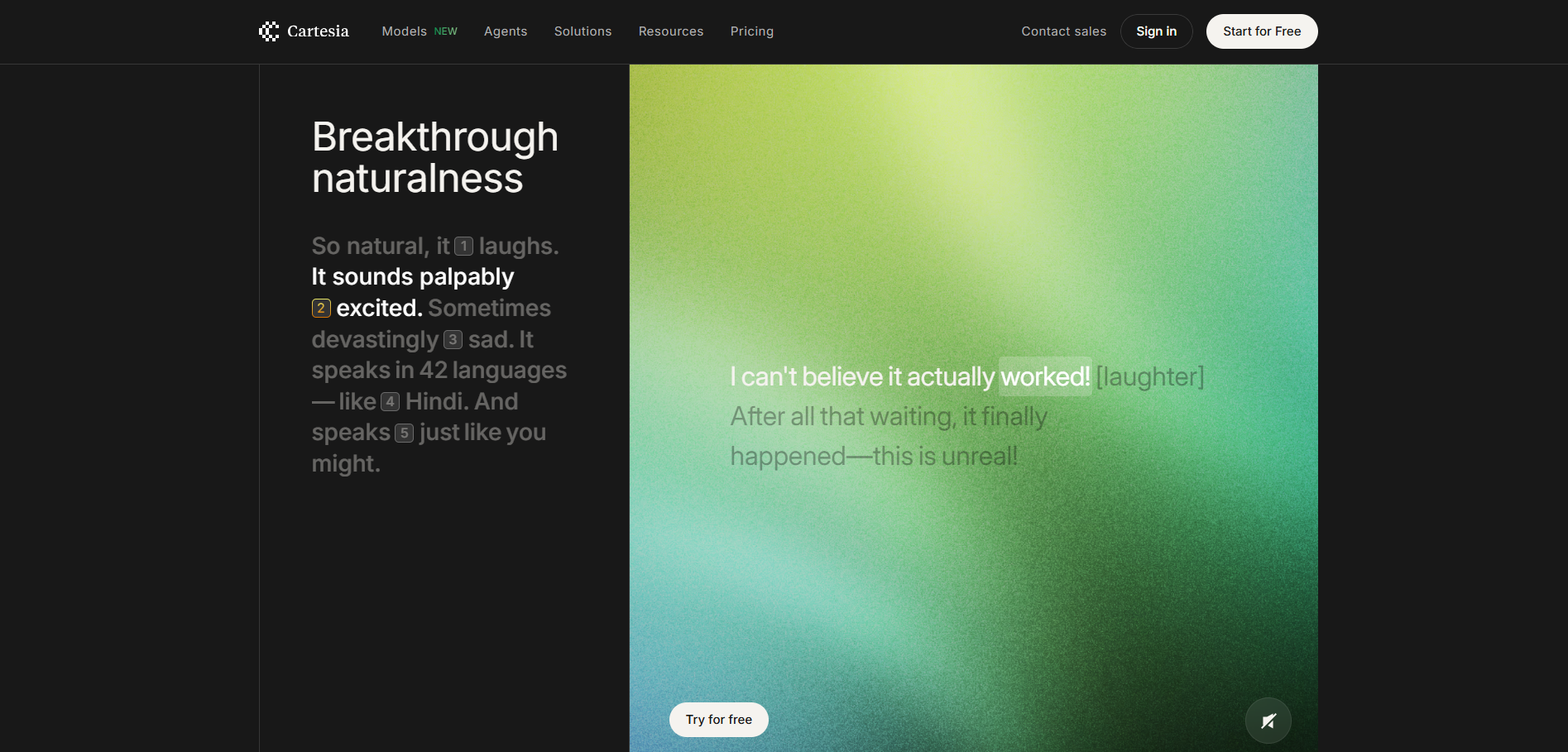
Cartesia envisions a future where interactive intelligence seamlessly integrates into everyday life through real-time voice AI that operates efficiently in any environment. By pioneering a transformative AI architecture based on State Space Models, Cartesia is redefining how voice interactions are synthesized and experienced, enabling unprecedented naturalness and responsiveness.
Rooted in groundbreaking Stanford research, Cartesia is driving a paradigm shift from traditional models to continuous streaming AI, delivering scalable, low-latency voice applications that empower developers and enterprises alike. The company is committed to building universally accessible, high-performance voice solutions that transcend current technological limitations and cultivate deeper human-AI connections.
As Cartesia expands its impact across customer support, media, gaming, and digital avatars, it remains dedicated to crafting the next generation of interactive intelligence—ubiquitous, efficient, and profoundly transformative for how we communicate and engage with technology.
Our Review
When we first encountered Cartesia, what caught our attention wasn't just their impressive Stanford pedigree or substantial funding — it was their radical rethinking of how AI processes voice. While everyone else seems content with the status quo of transformer models, this team is blazing a completely different trail.
A Breakthrough in Real-Time Voice AI
At the heart of Cartesia's innovation is their State Space Models (SSMs) technology. It's a bit like comparing a highway to a local road — where traditional AI models get bogged down in traffic as they scale, SSMs maintain smooth, efficient processing even with increasing complexity. The result? Voice AI that actually feels instantaneous.
Their flagship product, Sonic, showcases this perfectly. In our tests, the voice synthesis was remarkably natural and responsive, with virtually no perceptible delay. It's the kind of technology that makes you wonder why we ever settled for clunky, delayed voice interactions in the first place.
Where It Really Shines
We're particularly impressed by how Cartesia has managed to crack the real-time barrier while maintaining high-quality output. Their voice cloning and voice changing capabilities are surprisingly sophisticated, achieving a level of naturalness that's hard to distinguish from human speech.
With over 10,000 customers already relying on their technology, it's clear we're not the only ones excited about what they're building. The applications span from customer support to gaming, and we can see why — this is the kind of technology that could finally make voice interfaces feel truly seamless.
Looking Ahead
What really excites us about Cartesia is their vision for ubiquitous, interactive intelligence. They're not just solving today's voice AI challenges; they're building for a future where AI can run efficiently anywhere, without being tethered to the cloud.
With their recent $64 million Series A led by Kleiner Perkins, they're well-positioned to deliver on this promise. While other companies are iterating on existing solutions, Cartesia is fundamentally reimagining what's possible in voice AI — and that's exactly the kind of innovation we love to see.
Feature
Ultra-low-latency real-time voice synthesis
AI voice cloning
High fidelity voice changing
Efficient long-context voice AI processing
Scalable State Space Models (SSMs) architecture







